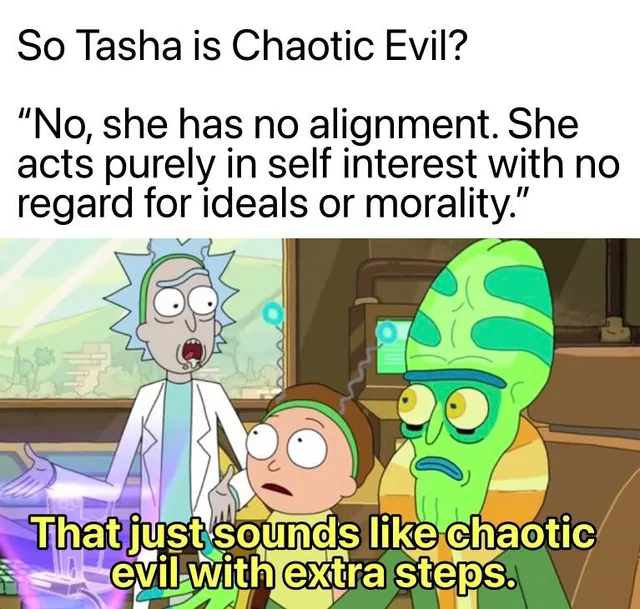Honestly, treating 'Evil' as just self-interested to the point of being willing to place your own desires above the wellbeing of others is actually one of my favourite takes on it, because
A) It makes it legitimately challenging but also very rewarding to be Good (I mean, what NPC isn't going to like someone that actually successfully respects their wishes and needs when helping them?)
B) It opens up Evil as a legitimate option for party members that isn't an instant dealbreaker
C) It allows you to run creatures meant to be 'inherently evil' (devils and chromatic dragons in particular) as assholes but not completely unthinking and unreasonable, which makes them a LOT scarier- these are intelligent creatures that should be just as witty and dangerous to hold a conversation with as they are to fight. A dragon that's undeniably a selfish bastard but can make compelling cases to try and out-RP the players and get them to fall into traps or hesitate to fight them, or a Devil that knows just how to play the role of a corruptor, someone who tempts the party and plays to win the big game.
